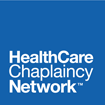Major Religious Traditions and Spiritual Care
Course Author: The Rev. Sue Wintz, M.Div., BCC
This course, Major Religious Traditions and Spiritual Care provides chaplains, counselors, nurses, and other healthcare professionals an overview of the five major religious traditions: Buddhism, Christianity, Hinduism, Islam, and Judaism as well as the growing population that refers to themselves as “nones” or “spiritual but not religious.” Emphasis is placed upon the beliefs, values, and practices that impact a person’s reaction to illness, trauma, end-of-life, and other issues of spiritual distress.
Self-guided courses include the latest research available for the intersection of spirituality into the course topic. Students have full access to a purchased course for six months to work at their own pace. There is one test at the end of the course, and participants will have three attempts to pass or fail. Upon successful completion, students earn a certificate of completion and continuing education hours.
Learning Objectives:
By the end of this course, the learner will be able to:
- Summarize the life of major religious figures.
- Describe the primary beliefs of each religious tradition and their relevance to current life.
- Identify, analyze, and apply different religious beliefs, values, and practices and their application to chaplaincy and other spiritual care modalities.
Course Outline
- Buddhism: Overview, Practices, and Application to Spiritual Care
- Christianity: Overview, Practices, and Application to Spiritual Care
- Hinduism: Overview, Practices, and Application to Spiritual Care
- Islam: Overview, Practices, and Application to Spiritual Care
- Judaism: Overview, Practices, and Application to Spiritual Care
- Nature-Based Religions: Native American, Pacific Island, and Wicca: Overview, Practices, and Application to Spiritual Care
- Other Traditions: Spiritual but not Religious, Atheism, Agnostic, Humanism, Baha’i, Sikhism
Number of Continuing Education Hours: 30
Number of Continuing Education for Spiritual Care for Nurses: 12
Aligns with the following Quality Indicators in What is Quality Spiritual Care in Health Care and How Do You Measure It? (HCCN. 2016).
- Process Indicator 2.B. All clients are offered the opportunity to have a discussion of religious/spiritual concerns.
- Process Indicator 2.C. An assessment of religious, spiritual, and existential concerns using a structured instrument is developed and documented, and the information obtained from the assessment is integrated into the overall care plan.
- Process Indicator 2.D. Spiritual, religious, cultural practices are facilitated for clients, the people important to them, and staff.
- Process Indicator 2.E. Families are offered the opportunity to discuss spiritual issues during goals of care conferences.
- Process Indicator 2.F. Spiritual care is provided in a culturally and linguistically appropriate manner. Clients’ values and beliefs are integrated into plans of care.
- Process Indicator 2.G. End of life and Bereavement Care is provided as appropriate to the population served.

